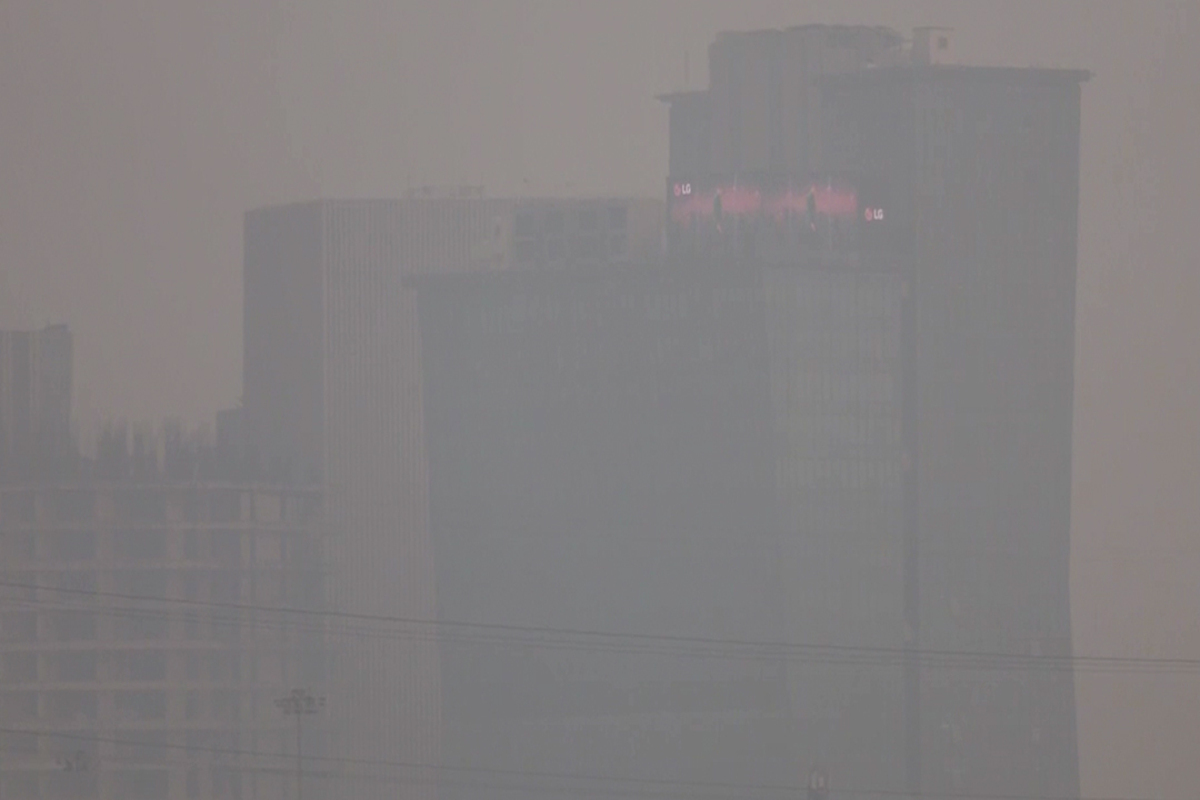Piercing cold and toxic air continue to batter Delhiites
The Weather Department has forecast dense fog in Delhi on Wednesday, with minimum and maximum temperatures to hover around 7 and 24 degrees Celsius.
Difficulty in breathing and irritation in eyes among other health-related issues continued to be a common refrain among the people in and around the national capital.

New Delhi, Nov 03 (ANI): Yamuna river near Delhi Noida Direct Flyway is barely visible due to smog which continues to engulf the national capital as the air quality remains in the 'severe' category with the average Air Quality Index (AQI) stood at 468, in New Delhi on Friday. (ANI Photo)
The thick blanket of haze formed by smog-covered Delhi skies continued to make the life of the residents miserable on Saturday as air quality of the air in the city remained ‘severe’ leaving them gasping for breath.
Difficulty in breathing and irritation in eyes among other health-related issues continued to be a common refrain among the people in and around the national capital. Patients, especially those suffering from asthma, bronchitis, lung issues, and cardiovascular diseases have been advised by doctors against venturing out in the open.
Several people in the streets, in buses, metro trains, two-wheelers, and even those commuting by private cars were seen wearing masks in a bid to breathe filtered air.
Advertisement
The average Air Quality Index (AQI) level in the national capital was recorded at 412 this evening, according to the Central Pollution Control Board (CPCB).
The AQI value was based on readings taken by the pollution control agency from 35, out of 40 air monitoring stations spread across the city.
Maximum AQI level on Saturday was recorded at Shadipur area, with a value of 487, followed by Anand Vihar with an AQI of 482.
There were several other places where the AQI levels pegged over 450.
Indian Meteorological Department (IMD) also mentioned of smoke and haze in the city skies, with the minimum temperature settling at 16.5 degrees Celsius here.
Low temperature, high humidity, and low wind speed make a deadly combination amid the present air pollution situation, as dispersion of particulate matter becomes difficult and is delayed, making pollutants stay stagnant at lower levels, as per experts.
Advertisement